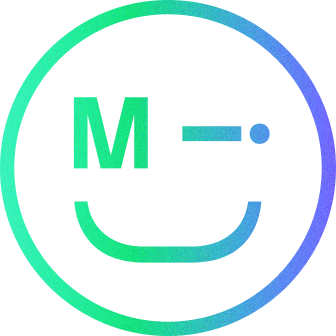Blockchain/DLT (Distributed Ledger Technology) is an emerging, complex technology that is not commonly or easily understood by non-technical audiences. Underlying concepts and terms in use are inherently esoteric, often requiring definition in their own right before the application and exploration of the technology can be discussed.
Orange xdLab identified that teams at Orange were increasingly interested to understand and explore how blockchain/DLT can be applied to their area of focus. Without a robust methodology and model to assess an opportunity for leveraging this technology, teams were fast-forwarding to technical solutions without first understanding the problem which needed solving or whether the blockchain could unlock and/or create value for actors and the ecosystem (within which they operate) that conventional (or centralised) technology would not be able to provide.
The objective of the project was to create a usable model that would help define requirements at both the technical and governance levels, as well as identify opportunities for business innovation.
The challenge
This objective gave rise to a number of challenges, including upskilling and developing the Make it Clear team to become familiar and knowledgeable of the blockchain subject matter and wider context. The team had to select the right elements from existing methodologies to draw from and amalgamate, coupled with creating new ones where required. They clarified and distilled the concepts into a form that would be approachable and workable for an audience that is non-technical but also has sufficient technical awareness to participate and benefit from the model. Make it Clear converted the model into a collaborative workshop format that would engage participants and deliver actionable outcomes to achieve the project goal.
Our approach
After researching available methods, we did not find a comparable service design model using blockchain/DLT. To help create one, our methodology drew on inspiration from elements of well-established methodologies in adjacent design fields, such as: Design Thinking, Systems Design, and Platform Design, but also required new approaches to be defined and tailored to the specificities of blockchain/DLT.
The bespoke blockchain/DLT design model would need multiple rounds of iteration to not only the content but also the process and how this should be delivered before being tested and validated on use cases with Orange stakeholders.
While there was a need to create a design model that would be appropriate for Orange, a key driver of the project was to produce something that could have wider application for organisations outside of the telecoms industry by focusing on actors and exchanges of value within an ecosystem instead of the underlying technical/technology solution. The goal is a model that could have future use in supporting the exploration of digital ecosystems and identifying opportunities that may use distributed ledger/blockchain to improve the overall performance of the ecosystem.
Applying a decentralised lens and untethering the discussion from the confines of proprietary boundaries brought to light new opportunities to define relationships and value exchange within an ecosystem, such as mobility. When capabilities are not constrained by a dominant actor(s) holding onto proprietary information, a wider range of service potential is made possible. Participation can also be democratised, broadening engagement with and inclusion of other actors. For example, enabling maintenance providers to securely share vehicle service history builds trust in a private owner’s physical asset (the vehicle) and creates a new asset (the service history), which provides value to other ecosystem actors, including manufacturers, infrastructure providers, and passengers.
Business impact
“MiC contributed insightful design expertise to our adaptation of Design Thinking for Distributed Services to create a tailored methodology for DLT and blockchain service ideation.” – Adam de Linde, Design Director, xdLab at Orange.
The model has already formed the foundation of a workshop hosted by Orange Tunisia for regional teams. In that instance, the applied topics were environmentally related covering distributed energy, natural assets tokenisation, and agri-food systems.
We’re looking forward to future opportunities to put the model into practice.
